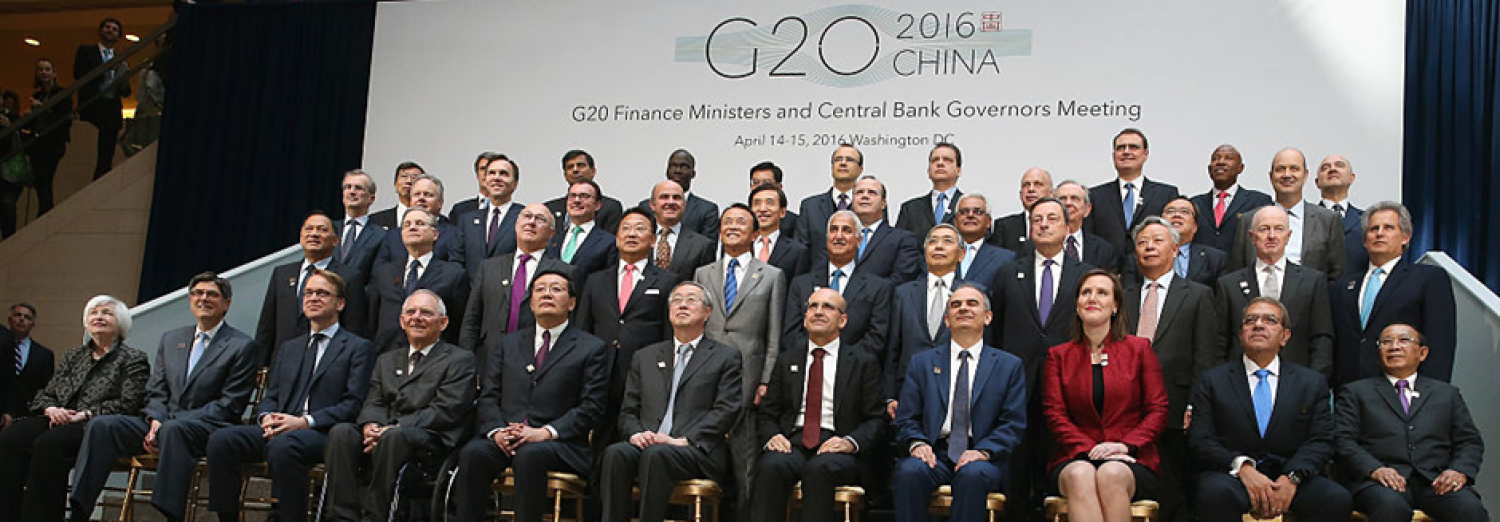Part 1 of this post examined the basic business case for Australia's involvement with the G20. This post examines the other, less appreciated strength of the forum: how it complements most other key planks of our economic diplomacy strategy. The key question therefore is not one of choosing how to 'balance' our G20 efforts with other approaches, but, rather, how to build a coherent strategy that secures Australia's interest through the totality of our relationships.
The G20 includes all our key bilateral economic partners and provides unrivaled opportunities to strengthen these relationships through regular contact and cooperation. Certainly the side meetings around the G20 are important opportunities to progress bilateral issues.
But international relationships are a bit like interpersonal ones: they gain strength from participating in common activities. Hence, our relationship with key countries have been deepened by our work with them in the G20 – negotiating common positions on G20 issues, caucusing, and ensuring Asia Pacific and other common interests are protected.
The G20 also supports our interests in key international institutions. The G20 has itself strengthened the role of the key economic crisis prevention and response institutions like the IMF and the Financial Stability Board (FSB). The G20 created the FSB and provides it with the necessary political backing, and this represents an important institutional strengthening of the global financial system. Our membership of the G20, and our own record of sound and pragmatic implementation of financial regulation, gives us a strong seat at this table. [fold]
Turning to the institution I currently work within, I consider that the G20 has strengthened the role of the IMF and Australia's voice within it. Australia has a strong national interest in an effective IMF, given the key role its surveillance advice and lending can play in crisis prevention and stronger growth. We particularly have an interest in a Fund that is respected and trusted partner in Asia. The G20 has delivered the political consensus required to both increase the resources and better distribute voting power within the IMF, including among Asian emerging economies. The G20's wide membership has assisted the Fund's own transition in recent years to developing policy positions more suited to a multipolar global economy. [fold]
Fund Management and staff rightly take seriously the task of advising the G20 on key economic policy issues. The G20 provides a forum to test the IMF's policy advice supporting growth and resilience. This is about getting better traction for Fund advice, and hence the priority on supporting the G20 is completely consistent with the Fund's mandate, and the interests of its members.
The IMF of course has its own governance institutions that must be respected, including the Board. It is particularly critical that the G20 doesn't step into operational decisions, and that policy decisions are subject to the involvement of the full membership.
Nevertheless, gaining consensus for major changes at the IMF is hard, and inevitably involves political trade-offs. The G20 provides an opportunity for key players to hammer out the basic outlines of consensus, which the more formal governance bodies can then work with to produce concrete progress. In this way, having a strong Australian presence within both the G20 and the Fund governance bodies is complementary.
Australia has always had a strong and respected voice inside the Fund, and this has been strengthened by our membership of the G20. We have a good reputation coming mainly from good economic performance over a sustained period. Sitting on the IMF Board as country experiences are assessed, it is clear we have done most things right over the last few decades across the key areas of structural reform, macroeconomic frameworks, macroeconomic management, and financial stability. This alone means people listen.
We have also brought a different perspective to the IMF as an advanced economy in a dynamic region with predominantly emerging economies. Indeed, one of the other ways in which our G20 and IMF participation are reinforcing is that we have long shared a chair at the IMF with Korea, another G20 country, and one that has only recently moved from emerging to advanced economy status. Our own interests as a country and a constituency generally match the broad range of interests in the Fund. This has, for example, put us in front of the curve on governance reform, and given us some ability to assist in forging consensus within the Fund on a range of issues. This approach works well with the structure of the G20 with its variety of players.
Our chairing of the G20 in 2014 was widely regarded as successful by Fund Management, staff and other Board members, which has further strengthened Australia's already strong reputation.
The G20 should by no means be the only element of our economic diplomacy but it should remain a central priority given its reach across our interests.
Photo: Getty Images/Mark Wilson

